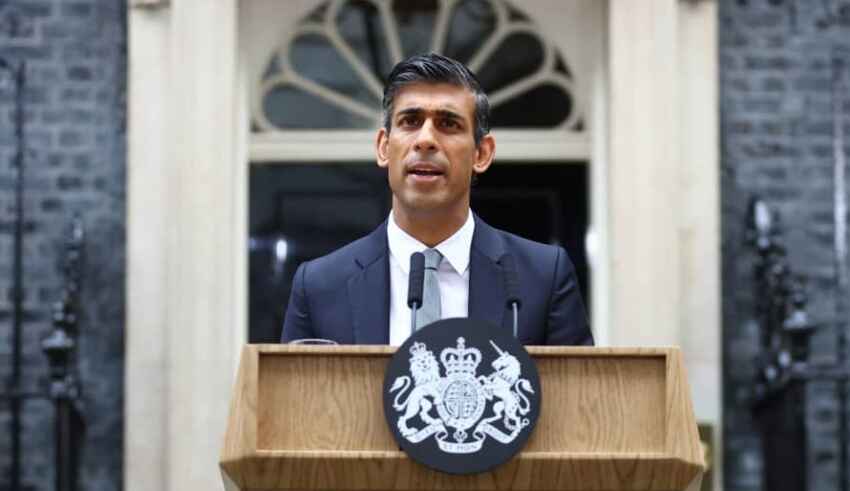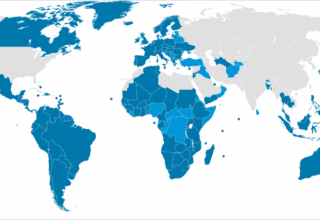
The new ‘immigrant’ prime minister of the United Kingdom is garnering both praise and criticism for his new immigration policy. As understood, praise comes from within for his decision to set an annual quota for refugees coming to the United Kingdom. However, the international community is scrutinizing Sunak’s quota against customary international law and the Refugee Convention. Sunak’s five-step immigration plan aims to crack down on ‘illegal immigration’, which would address the asylum backlog currently straining the immigration system. He is also persistent in addressing the influx of asylum seekers from Albania arriving in small boats, which is categorized as a ‘safe and prosperous European country’. Scandinavian countries such as Sweden, also France and Germany have previously rejected almost 100 per cent of the asylum claims from Albania. Sunak’s plan aims to address such asylum claims, which tilts the balance against genuine asylum seekers.
However, the Prime Minister’s plan to deny asylum to migrants arriving in small boats violates international law and deviates from the United Kingdom’s history of acceptance and humanitarianism. Sunak’s plans involve detaining asylum seekers who enter illegally and returning them to their home country or a safe country where their asylum claim will be considered. The pattern of western nations pushing asylum seekers out into smaller countries is problematic as some to how asylum seekers suddenly have a valid claim in ‘smaller’ and ‘poorer’ nations. Pushing asylum seekers into other parts of the world reflects a mentality to ensure that one’s own country remains inaccessible unless you’re privileged (be it race or your education). By enforcing ‘legal routes’ for asylum seekers and refugees, Sunak would violate international law. Limiting asylum to people arriving through pre-decided ‘legal routes’ and forcing them out violates basic principles of the 1951 Refugee Convention and international refugee law. To the international community’s dismay, the U.K High Court has ruled in favour of the British government’s plan to fly asylum seekers to Rwanda. The court held that the new immigration policy does not break the law and is consistent with the government’s legal obligations, including the obligation under the Human Rights Act, of 1988. However, processing the asylum claims that the U.K. rejected in Rwanda, a country whose human rights record has been criticized, would violate international law. Agreeing to enter into a partnership with a nation with an abysmal human rights record points to the gravity of the United Kingdom’s government’s willingness to circumvent international law and its responsibilities towards asylum seekers. Further, placing caps on asylum and refugee quotas has been criticised by various international organizations since the advent of these restrictions. The U.K. follows suit with other nations, such as the United States. However, unlike the United Kingdom, the latter has not signed the 1951 Refugee Convention. Unfortunately, violation of international law affects ‘developed’ nations differently than the rest. With little to no repercussions for violating refugee law, Sunak’s policy is likely to move ahead.
However, PM Sunak is yet to face the flood of litigation that is to follow. Charities are more than likely to appeal the UK High Court’s judgement. Even if the government wins and succeeds in implementing the immigration policy, the courts in the UK will soon be vexed with specific litigation over specific deportations. If the party intends to reduce the backlog in the immigration system, this policy could only worsen the burden on the court system. Neither would the implementation of this policy deter people from fleeing life-threatening situations. Instead of focusing on ineffective immigration caps, the U.K. Government must establish safe routes for asylum seekers. The international community is calling out the double standards of the west in accepting Ukrainian asylum seekers and refugees, however, to little avail.
This immigration policy is an early test for Rishi Sunak in his Prime Ministerial position. In an attempt to take back control of the political situation in the U.K., Prime Minister Sunak has failed to uphold the principles of international humanitarian law. The Parliament should aim to find concrete solutions than a temporary fix. If not, it won’t be long until PM Sunak finds himself losing the momentum he seems to be aiming at in restoring the U.K to its ‘Great Britain’ days.
By The European Institute for International Law and International Relations.















